Related Research Articles

Manfred Mann were an English rock band formed in London in 1962. They were named after their keyboardist Manfred Mann, who later led the successful 1970s group Manfred Mann's Earth Band. The group had two lead vocalists: Paul Jones from 1962 to 1966 and Mike d'Abo from 1966 to 1969. Other members of various group line-ups were Mike Hugg, Mike Vickers, Dave Richmond, Tom McGuinness, Jack Bruce and Klaus Voormann.
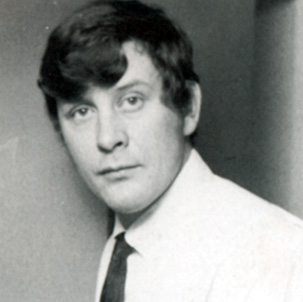
Michael Peter Hayes, known as Mickie Most, was an English record producer behind scores of hit singles for acts such as the Animals, Herman's Hermits, the Nashville Teens, Donovan, Lulu, Suzi Quatro, Hot Chocolate, Arrows, Racey and the Jeff Beck Group, often issued on his own RAK Records label.
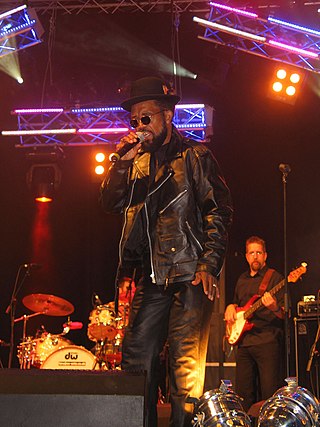
Cecil Bustamente Campbell, known professionally as Prince Buster, was a Jamaican singer-songwriter and producer. The records he released in the 1960s influenced and shaped the course of Jamaican contemporary music and created a legacy of work that would be drawn upon later by reggae and ska artists.
Popular music of the United Kingdom in the 1980s built on the post-punk and new wave movements, incorporating different sources of inspiration from subgenres and what is now classed as world music in the shape of Jamaican and Indian music. It also explored the consequences of new technology and social change in the electronic music of synthpop. In the early years of the decade, while subgenres like heavy metal music continued to develop separately, there was a considerable crossover between rock and more commercial popular music, with a large number of more "serious" bands, like The Police and UB40, enjoying considerable single chart success.
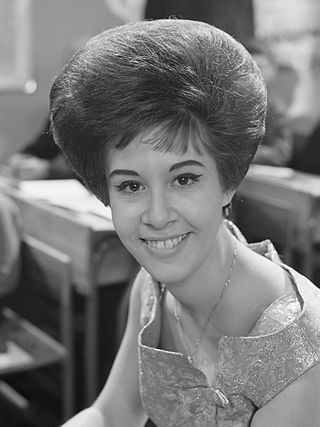
Helen Kate Shapiro is a British pop and jazz singer and actress. While still a teenager in the early 1960s, she was one of Britain's most successful female singers. With a voice described by AllMusic as possessing "the maturity and sensibilities of someone far beyond their teen years", Shapiro recorded two 1961 UK chart toppers, "You Don't Know" and "Walkin' Back to Happiness", when she was just 14 years old.
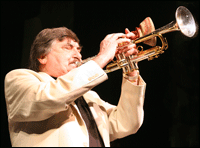
Kenneth Daniel Ball was an English jazz musician, best known as the bandleader, lead trumpet player and vocalist in Kenny Ball and His Jazzmen.
People from the Caribbean have made significant contributions to British Black music for many generations.
"Mockin' Bird Hill" is a song written in 3/4 time by Calle Jularbo, with lyrics by George Vaughn Horton. It is perhaps best known through recordings by Patti Page, Horton's own Pinetoppers, and the duo of Les Paul and Mary Ford in 1951, or by Donna Fargo's 1977 version, but many other artists have also recorded the song.

Millicent Dolly May Small CD was a Jamaican singer who is best known for her international hit "My Boy Lollipop" (1964). The song reached number two in both the UK and US charts and sold over seven million copies worldwide. It was also the first major hit for Island Records and helped to achieve the label its mainstream success. She was the Caribbean's first international recording star and its most successful female performer.

The Equals are an English rock band. They are best remembered for their million-selling chart-topper "Baby, Come Back", though they had several other chart hits in the UK and Europe. Drummer John Hall founded the group with Eddy Grant, Pat Lloyd and brothers Derv and Lincoln Gordon, and they were noted as being "the first major interracial rock group in the UK" and "one of the few racially mixed bands of the era".
Blue Beat Records is an English record label that released Jamaican rhythm and blues (R&B) and ska music in the 1960s and later decades. Its reputation led to the use of the word bluebeat as a generic term to describe all styles of early Jamaican pop music, including music by artists not associated with the record label.
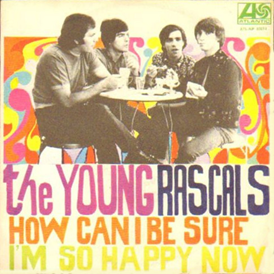
"How Can I Be Sure" is a popular song written by Felix Cavaliere and Eddie Brigati, and originally recorded by the Young Rascals for their 1967 album Groovin' with a single release in August 1967 affording the group their fourth Top 10 hit.
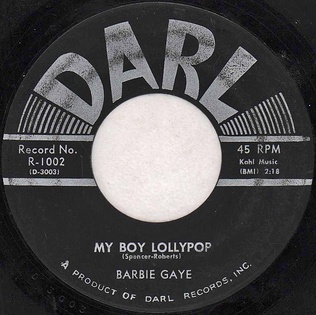
"My Boy Lollipop" is a song written in the mid-1950s by Robert Spencer of the doo-wop group The Cadillacs, and usually credited to Spencer, Morris Levy, and Johnny Roberts. It was first recorded in 1956 by American singer Barbie Gaye under the title "My Boy Lollypop". A later version recorded by Jamaican singer Millie Small in 1964, with very similar rhythm, became an international hit that time and is one of the first songs to introduce ska music.
The Vipers Skiffle Group – later known simply as The Vipers – were one of the leading British groups during the skiffle period of the mid to late 1950s, and were important in the careers of radio and television presenter Wally Whyton, coffee bar manager Johnny Martyn, wire salesman Jean Van den Bosch, instrument repairer Tony Tolhurst, journalist John Pilgrim, record producer George Martin, and several members of The Shadows.
Michael Edward Cotton is an English jazz and R&B trumpeter, flugelhornist, harmonicist, vocalist and bandleader born in Tottenham, North London. He is best known for leading his band under the names The Mike Cotton Jazzmen and The Mike Cotton Sound. Cotton currently plays with the Stars of British Jazz.
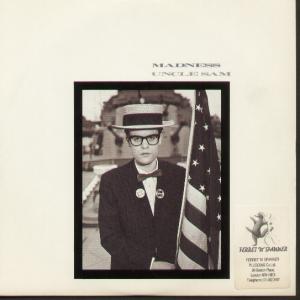
"Uncle Sam" is a song by the English ska and pop band Madness from their sixth studio album Mad Not Mad (1985). It was predominantly written by saxophonist Lee Thompson, but also jointly credited to guitarist Chris Foreman.
"You Were on My Mind" is a popular song written by Sylvia Fricker in 1961. It was originally recorded by Ian & Sylvia, but better known versions were recorded by We Five and Crispian St. Peters.

Big Country are a Scottish rock band formed in Dunfermline, Fife, in 1981.

Mike Elliott is a Jamaican-born British saxophonist. He played on ska recordings in the early 1960s and on pop and soul music hits in the late 1960s. He is best known as a co-founding member of the British band The Foundations, and played on their hit singles "Baby, Now That I've Found You" and "Build Me Up Buttercup".
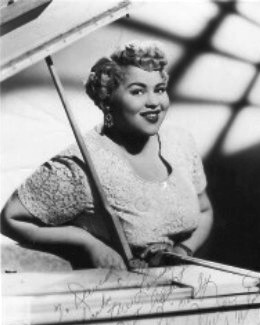
Paula Watson was an American jazz and R&B singer and pianist.
References
- 1 2 3 4 "The Migil 5 | Biography & History". AllMusic . Retrieved 13 June 2021.
- 1 2 3 4 5 Colin Larkin, ed. (1997). The Virgin Encyclopedia of Sixties Music (First ed.). Virgin Books. p. 304. ISBN 0-7535-0149-X.
- 1 2 Roberts, David (2006). British Hit Singles & Albums (19th ed.). London: Guinness World Records Limited. p. 363. ISBN 1-904994-10-5.
- 1 2 "Migil 5". 45-rpm.org.uk. Retrieved 13 June 2021.
- ↑ "Mike Felix CV". Dhmlimited.co.uk. Retrieved 13 June 2021.